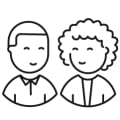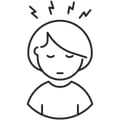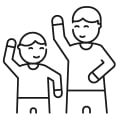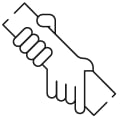After a child has had ACEs, the best thing you can do is try to prevent future harm while helping the child heal from the experiences they've already had. Sometimes it can be hard to know where to start, or what to do. Remember, it's never too late to make changes, big or small. Here are some tips.

Find a counselor. A counselor can help the child process their experiences and learn skills to cope. Try to find a counselor who has experience helping kids who've had ACEs or trauma.

Make days calm and predictable. Setting up routines can reduce stress by helping a child know what to expect each day.

Give affection. Show that you care with both your actions and your words.

Manage your reactions to stress. If you tend to get angry, yell, or be short-tempered, work on learning skills for how to respond to stress in a healthier way.

Encourage the child's ongoing relationship with a trusted adult. This could be someone like a teacher, a coach, a family friend, or a grandparent.

Help the child feel in charge of their body. For example, if younger children don't want to hug or be hugged, respect their decision. And teach adolescents and teens about sexual consent. Asking for consent means asking someone for permission to touch them or be sexual with them in any way.

Ask for help when you need it. Make a list of people you could call when you need help. And if you need help with housing or food, ask a doctor, counselor, or social worker about resources.

Learn about parenting classes in your area. Being a parent is really hard. Classes can help you learn new tools for how to parent as your child changes and grows.

Get help working through your own ACEs, if needed. When adults don't heal from their own ACEs, they're more likely to create homes where children are exposed to ACEs. But you can break the cycle. See a counselor, get treatment for depression and other mental health issues, and get help if you have problems with substance use.










